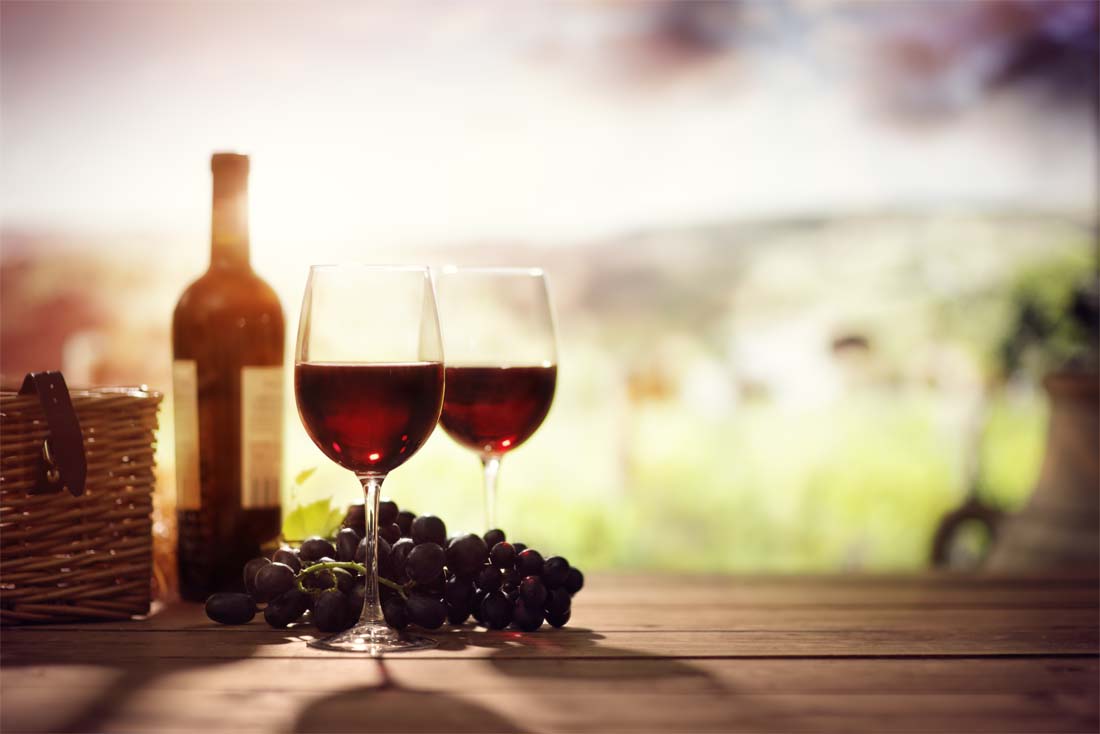
18 Jun Are Estate-Bottled and Single Vineyard Wines The Same?
If you thoroughly read what is written on wine bottle labels, you may find some of it is quite straightforward while at other times, it can be frustrating and very complicated to read and understand. However, when you opt for wines from a credible winery, you can be sure that all of this information would be carefully crafted. On these labels, you may come across terms such as “single vineyard” or “estate-bottled”.
Interestingly, many people believe that these two terms are the same thing. While it is true they sound quite similar, each has a very district definition. These definitions can also vary by producer and the country in which the wines have been made.
Australian Wines
As a wine enthusiast, you are always eager to learn more about not just the wines, but about their history, where they come from, how they’re made etc. Here is some information that will give you a better idea about the differences between estate-bottled and single vineyard wines.
About Single Vineyard Wines
Grapes that go into making single vineyard wines all come from the same vineyard; it also indicates geographic specificity. Another important aspect is that the name of the producer that you notice on the label might not be the owner of the vineyard or have control over the farming that takes place there.
About Estate-Bottled Wines
Estate wines are different, and they reflect agricultural consistency. In most wine-growing regions, the term estate refers to the fact that the winery has 100% control over the farming process. The producer might be the owner of some of the land but not necessarily. Also, very importantly, the grapes could be grown on various plots of land, but the same entity handles the farming aspect. It is why you might find some of your favourite wines with estate-bottled labels while other similar wines could be single-vineyard products.
Regulations
In Australia, there are many different controls when it comes to the content and form of wine labels. These coexist with the regulations surrounding Geographic indication. Truth in labelling is one of the most critical aspects of labelling, which is guaranteed by The Australian Label Integrity Program.
This voluntary control system on all Australian winemakers requires them to maintain detailed and accurate records of their wine-making. It helps in the audit process at any stage. In addition to whether the wine is estate-grown or single-vineyard grown, the records need to account for the tonnage of grapes processed. The system tracks the wine produced from those grapes and where it is sold. What complicates issues is that these terms do not mean the same thing in all parts of the world.
About US Wines
A large number and variety of wines from the US make their way to Australian consumers. These wines also have the single-vineyard and estate-bottled labelling. However, in the US, the term estate is not governed by any regulations. It also means that some marketers could use it to their advantage. They will mention “estate-bottled” on their wine labels regardless of who has farmed it.
However, the term estate-bottled has legal protection. It is defined by law, and any winery that mentions this on their label must ensure that the wine is made and bottled at a particular producer’s winery. In short, estate-bottled wine would be made with grapes that have the same geographical provenance. Their farming, fermentation, aging and bottling will have been done on-site.
French Wines
In Burgundy, France, wineries might create different labels to differentiate between wines that have been made with the grapes they have farmed versus ones made from the fruit they have purchased. This aspect could also result in varying wine costs.
Which Wines Cost More?
Given all these differences, when you see the words single-vineyard or estate-bottled on wine labels, what is it that you need to think? Should you be paying more for these specific bottles? Yes, you might. Single vineyard and estate-bottled wines will generally come with higher price tags because they are of superior quality as well.
Wine quality depends on where the fruit has been grown. Sometimes if a particular wine has been made in a limited quantity, the rarity factor will up its cost. When producers add the terms estate or single-vineyard to their wine labels, they do this to attract attention to them. Sometimes they might be producing premium quality wines, while at others they might just be different from what is expected by consumers from their region or winery. It is necessary to recognise that the terms don’t always guarantee quality.
There are several superb wines out there produced using fruit blends from multiple vineyard sites that harvest high-quality fruit. It means that these producers can take advantage of the robust characteristics of the fruit from various vineyards which goes into creating a unique blend. It is why grapes made from single vineyards might not always be of better quality than ones that are not. When it comes to what’s in or on a wine bottle, things are rarely that simple.
Custom-Designed Wine Cellars for Your Single-Vineyard And Estate-Bottled Wines
No matter which wines you relish, if you are a wine lover or a collector, you would want to have the right storage solutions for your reds, whites and sparklings. This is where our expertise comes in. We are the experienced and credible custom wine cellar designers and builders that create superb wine cellars for our clients.
When you store wines in these cellars, you can be sure they have the right environment to stay in good condition. Our team will work closely with you to understand your requirements, before designing a custom wine cellar that will meet your needs and be a value-add to your home as well.
To find out about how we at Signature Cellars can help with the design and build of a custom wine cellar, call us on 1300 570 636 or email info@signaturecellars.com.au. Our experts will respond soon, to discuss your customised wine cellar project requirements.
Thanks for reading,
Neil Smallman
Signature Cellars
1300 570 636




No Comments